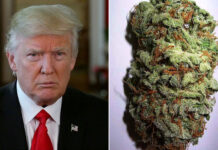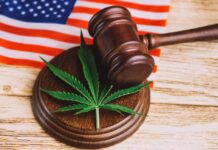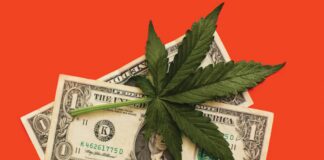
Carlos Huerta, an American soldier and Iraq War veteran, couldn’t shake the images of children dying and the faces of orphans he was charged with giving the most unthinkable news.
Flashbacks and nightmares such as these, along with stress and anxiety, frequently plague people who have been exposed to violence, natural disasters, or other traumatic events. The resulting post-traumatic stress disorder (PTSD) can linger for years or a lifetime without psychotherapy and complementary treatments. Veterans of war like Huerta are prone to experience PTSD, and 67% of individuals who have been exposed to the mass violence characteristic of the battlefield suffer from this disorder.
There is often a stigma attached to having PTSD, as Huerta expressed in an article he wrote for the U.S. Army website, “A heart attack was honorable. PTSD was not.” Keeping PTSD off limits as a taboo topic in the military has prevented countless sufferers from getting the help they need. Many do not want to attend counseling sessions or participate in any treatments that could be perceived as weak. As there is an established relationship between PTSD and suicide, these individuals are in dire need of some kind of effective treatment.
Cannabis medicine has shown to be successful in treating stress and anxiety in some individuals, so could it be a solution for PTSD which encompasses these symptoms?
Research Overview
A 2018 article published in Healthcare in America asserted in its headline that cannabis could be the key to treating people with PTSD. Angelique Moss, the author of the article, wrote: “Cannabinoids like CBD [cannabidiol] can help empower the body’s endocannabinoid system and promote quality sleep, prevent traumatic memories from arising, as well as establish physical and emotional wellbeing to mitigate these devastating symptoms of PTSD and allowing patients to regain hold of their lives.”
In fact, current research largely supports Moss’s viewpoint.
The Studies
Science Daily reported findings in 2013 from an New York University (NYU) Langone Medical Center in New York City study that there is a link between cannabinoid receptors in the brain and PTSD. NYU researchers found that individuals with PTSD had markedly lower levels of the neurotransmitter anandamide, which closely resembles THC, than the general population. Such neurotransmitters have the power to impair memory, which can decrease traumatic flashbacks as well as anxiety. With lower levels of the neurotransmitters, individuals with PTSD will not reap these benefits. For context, restoring someone’s endocannabinoid system into a state of balance is akin to giving insulin injections to a diabetic or replacing a hormone for someone with a thyroid condition. Just as insulin and hormone levels need to be in homeostasis, so do levels of neurotransmitters, which cannabis has the ability to achieve.
Also in favor of cannabis medicine for PTSD, a literature review published in 2015 in The Primary Care Companion for Central Nervous System (CNS) Disorders concluded: “To date, there is no large-scale, randomized, controlled study investigating efficacy of marijuana and PTSD symptomatology; however, the literature that exists suggests that it may have an effect on decreasing PTSD symptoms, and the neurobiological and animal studies seem to suggest potential underlying mechanisms consistent with these findings.”
Though there is still a need for a large-scale study, there is a clinical trial in process testing how medical marijuana functions for 76 veterans with PTSD. Sponsored by the Multidisciplinary Association for Psychedelic Studies (MAPS) — a Santa Cruz, California-based organization working to research the therapeutic potential of controlled substances such as cannabis, LSD, and psilocybin — the clinical trial aims to understand the risks and benefits associated with cannabis and PTSD by having participants smoke marijuana containing varying amounts of CBD and THC. Participants completed their role in the trial as of January 2019 and an analysis of results is forthcoming.
Finally, a 2018 literature review published in Frontiers in Neuroscience described how CBD can be a therapeutic alternative for individuals with PTSD. Citing both animal and human studies, the authors confirmed how CBD can inhibit disturbing memories while offering fewer side effects than traditional pharmacological therapies.
Patient Perspectives
After a second tour of duty in Afghanistan, Fabian Henry returned to his native Canada with PTSD as baggage. Henry subsequently began using cannabis for his PTSD and opened a company called Marijuana for Trauma in Edmonton, Alberta. According to a Dec. 14, 2017, Psychology Today article, he is among numerous PTSD sufferers who have channeled the healing powers of cannabis to fight the anxiety and traumatic memories associated with their disorders.
(gtdenohgrear via Flickr)
A 2017 article published in Psychology Today featured an interview with medical marijuana patient Dianna Donnelly, who is also a counselor. In the interview, Donnelly said:
“I am a patient who legally uses cannabis for depression. The cannabis helps mute or lower my negative chatter, which allows for good thoughts and feelings to arise. One veteran, a friend of mine, who recently started using medical marijuana instead of prescription medication for PTSD, said that with the cannabis, he can feel his emotions, and experience them properly and safely. Before, he just felt numb.”
Another PTSD patient, Elvis Alonzo, was profiled in a 2018 article published in Scientific American. A former Marine and Glendale, Arizona, police officer, Alonzo battled severe PTSD that his medications were unable to treat. After starting a regimen of cannabis, Alonzo noticed monumental improvements to his wellbeing. He shared, “It’s been a godsend. It curbs my anxiety, and it makes me sleep fantastic for at least four hours. It needs to be studied.”
Many medical experts concur with Alonzo: Medical marijuana needs to be studied as a real treatment option for PTSD.
What Experts Say
Dr. Alexander Neumeister, lead author of the NYU study and director of the molecular imaging program in the Departments of Psychiatry and Radiology at NYU School of Medicine, perceives a pressing need for alternative PTSD treatments, including cannabis therapy.
“There’s not a single pharmacological treatment out there that has been developed specifically for PTSD. That’s a problem,” Neumeister said. “There’s a consensus among clinicians that existing pharmaceutical treatments such as antidepressants simply do not work.
“In fact, we know very well that people with PTSD who use marijuana — a potent cannabinoid — often experience more relief from their symptoms than they do from antidepressants and other psychiatric medications. Clearly, there’s a very urgent need to develop novel evidence-based treatments for PTSD.”
Experts also recognize the need to distinguish between THC and CBD, and which of these natural compounds could be better suited to treat PTSD. According to Marcel Bonn-Miller, a psychology and psychiatry professor at the University of Pennsylvania’s Perelman School of Medicine in Philadelphia in the same Scientific American article that profiled Alonzo, the Marine-turned-police officer: “Think of CBD as a shotgun. It hits so many receptors that people are still trying to understand it. If you want to actually treat PTSD, most of the evidence is pointing toward CBD. But most people with PTSD are gravitating toward [marijuana] products with high THC levels, which may help in the short-term but are likely to worsen their symptoms over time.”
Bonn-Miller’s opinion aligns with the findings of some recent studies, such as a 2018 case series published in the Journal of Alternative and Complementary Medicine published by Mary Ann Liebert Inc. Clinicians found that oral CBD, in concert with psychiatric care, resulted in a reduction of PTSD symptoms.
The Bottom Line
Cannabinoids, specifically CBD, could be the alternative medicine that PTSD sufferers have been desperately needing, and more research will illuminate the possibilities of medical marijuana in addressing this stigmatized condition that too often goes untreated.















